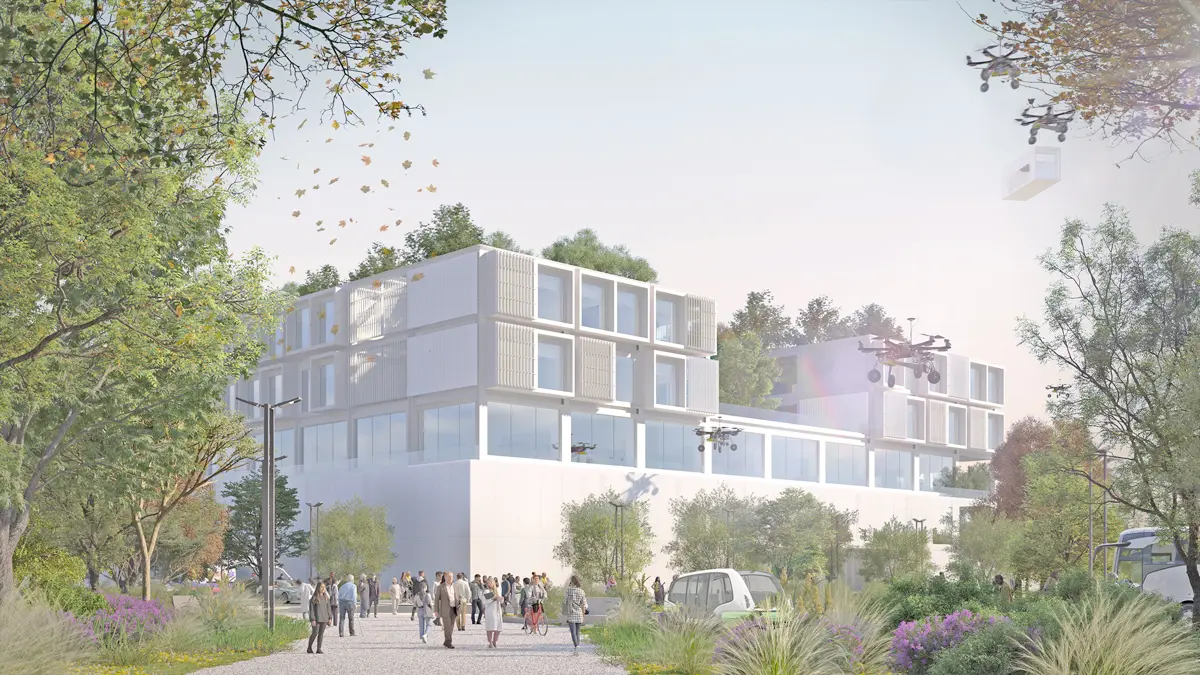Promoting a built environment as a place of health, well-being, safety, knowledge, and inclusion

From the Cluster to the “Design & Health Lab”
Since 2010, the ABC Department (formerly BEST), in collaboration with seven other departments of the Politecnico di Milano, has established and coordinated the “Cluster in Design of Healthcare Facilities,” aimed at organizing international conferences on the design of healthcare architecture through a multidisciplinary and cross-sectoral approach.
In 2019, the Cluster was formally acquired by the ABC Department, leading to the creation of the “Design & Health Lab”, a dedicated research laboratory.

From the Design & Health Lab to the “WHO Collaborating Center for Design & Health: Healthcare Infrastructures Planning, Design and Evaluation”
2020
The ABC Department launched a new strategic initiative through the creation of Observatories. Among these, the thematic focus on “Resilient Hospitals: Guidelines for Designing New Hospitals and Reconfiguring Existing Ones” emerged.
This resulted in a set of design strategies widely disseminated across various national platforms, including Corriere della Sera, La Repubblica, and RAI News. The report also explored the relationship between hospital infrastructure and the broader local social and healthcare networks.
2022
2022
The Lombardy Region (ATS Milano Metropolitana) commissioned the ABC Department to draft preliminary design guidelines for the development of Community Health Centers, a new identity feature in local healthcare designed to reduce inappropriate use of emergency rooms and relieve pressure on emergency care systems.
The National Agency for Regional Healthcare Services (AGENAS) entrusted the Department with the drafting of three meta-design documents to complement Ministerial Decree 77/2022, focusing on:
- Community Health Centers (CdC)
- Community Hospitals (OdC)
- Territorial Operations Centers (COT)
These documents have been adopted by 20 regions and 2 autonomous provinces in the planning of new healthcare infrastructures under the NRRP (National Recovery and Resilience Plan), covering approximately 1,430 CdCs, 434 OdCs, and 611 COTs.
The World Health Organization (WHO) commissioned the ABC Department to produce the Technical Brief “Hospitals of the Future”.
2023
At the WHO Europe Regional Meeting on Hospitals held in Baku (Azerbaijan), the WHO presented the document “Fit-for-purpose hospitals: Prioritizing Quality and Sustainability to Meet the Demands of Modern Healthcare”, featuring the new design recommendations for future hospitals in the European Region.
The event was attended by representatives from the Ministries of Health of all 54 Member States.
Following this, WHO's regional office engaged the ABC Department to apply some of these strategies in the Republic of Moldova, specifically for the reorganization of the National Oncology Center.
2024
The ABC Department was officially accredited as a WHO Collaborating Center for the period 2024–2027, with a global mandate in:
Design & Health: Healthcare Infrastructures Planning, Design and Evaluation.

Commitment
The strategies proposed in the Technical Brief involve National and Regional Healthcare Systems, Health Protection Agencies, Hospital Authorities, and territorial socio-health services, as well as the entire healthcare construction value chain.
This shared effort aims to establish innovative and coherent macro-regional strategic guidelines, benefiting the construction industry through the design and implementation of more efficient, sustainable, and inclusive healthcare infrastructures.
These infrastructures will ensure better access to care, support system resilience, and provide high-quality treatment environments that are welcoming and high-performing.
The impact of these efforts will be felt directly and indirectly by patients, caregivers, and healthcare and social care professionals — a wide and vulnerable segment of the population that, following the Covid-19 pandemic, requires particular attention and support.

Joint Research Partnership Healthcare Infrastructures (JRP HI)
The first and most economically significant result of this vision is the establishment of the Joint Research Partnership Healthcare Infrastructures (JRP HI), a collaborative research initiative involving 40 partners, including institutional bodies and companies in the healthcare supply chain, with a budget of €1.5 million for 2022-2025.
The JRP HI contributes to the development and testing of evolutionary strategies for design, technological, organizational, construction, and management innovation that will enable competitiveness in the transition of healthcare from an exclusively hospital-centric model to a sustainable user-centric model, integrated into a physical and digital territorial network.